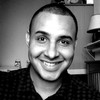Director Ryan Coogler and actor Michael B. Jordan on the set of 'Creed.' Photo courtesy of Warner Brothers Pictures
Advertisement
Advertisement
Ryan Coogler: Whether folks take it directly on their shoulders or not, I think it comes with the territory for artists to reflect on things that are going on in the world at large. In general, artists who represent, or come from minority communities, tend to have that pressure on their shoulders a little more. That being said, it's not just black folks in our network. Our network is very diverse. We have people who come from a variety of different backgrounds that are actively a part of it.What does Dr. Martin Luther King, Jr., mean to you personally?
When I was young, he was like the most well-known civil rights leader in the world; he was the one that I knew about, the one that we learned the most about at school. We had a holiday dedicated to him, but for the most part, that holiday was really just a day away from school. As I got older, I realized that there was a lot more to the man than his "I Have a Dream" speech. Since becoming an adult and having a chance to read more of his speeches, discover more about his life, and see a film like Selma, directed by Ava DuVernay, who is also part of the Blackout network, it gives much more context to who he was. There's two Martin Luther Kings out there: the one that people tell you about; and the one that, as an American, you have a responsibility to read about yourself. He truly was a humanist and a revolutionary thinker. He was a profoundly selfless man, and he was doing things that were very dangerous.
Advertisement
Well, there's a reason why he was killed. He's often looked at out-of-context, even within African-American communities. At this event, we're putting on two speeches by King, "Beyond Vietnam" and "I've Been to the Mountaintop." He was somewhat of a prophet. Going over those speeches today, the things he was talking about then really are just as applicable today. It's almost comical. I don't know if you watched Chappelle's Show, but he had that skit about Tupac, [which riffed on the idea] that his lyrics were so ahead of his time that people thought he was still alive—he seemed to be commenting on stuff that was so current that he couldn't have passed away several years ago. I feel that way when I read King's speeches, especially "Beyond Vietnam." And in "…Mountaintop," he talks about things that we actually talk about in Blackout. We're trying to capture the spirit of the man, and where he was at before he was murdered.There's a disturbing continuity to the problems African-Americans face, in terms of police brutality and economic inequality. Do you feel there's now a growing willingness in younger generations to come out and say the fight is actually against structural white supremacy?
I think there is an inherent fear to talk about that stuff directly. There are those who know what white supremacy means and are afraid to talk about it for fear of the consequences, and there are those who don't understand what it is. I'm starting to see the issue being talked about more and more head-on, and with more nuance, which is important. All the things that we're dealing with, they didn't come out of nowhere. As a society, we've been dealing with these issues since the country got started. If you look at Hamilton, the musical by Lin-Manuel Miranda that's taking New York city by storm, what's interesting about it is how applicable to today the stuff that the founding fathers were talking about. These things were being talked about in the 1950s and 1960s, and some of the speeches we have scheduled for #MLKNOW come from the 1920s, and even before that. It's scary how much it applies to today, but it's simultaneously energizing to know that the things we struggle now with didn't fall out of thin air.
Advertisement
When we put it together, we realized that most of the men whose words we'll be reading have been assassinated. One of them, Fred Hampton [chairman of the Illinois chapter of the Black Panther Party] was murdered by Chicago police. Michael B. Jordan will be reading a speech by him.Are you feeling optimistic about the effect that Blackout will have?
I can't help but feel a sense of optimism. I'm really excited about the event, and I'm not sure I've personally ever been to one like it. It's exciting for the audience member in me to see these people come together with words like this, in a venue like this, in a city like New York. To see an analysis of the situation on a greater level, and an awareness of what we want to do, across genres of work and schools of thought, from artists to journalists and teachers, people who work in the community… I think that you can't help but feel some level of optimism. That being said, it is a very scary time, and a dangerous time where lives are being lost unnecessarily, and accountability isn't there like it should be.
Yeah, absolutely. If you peel the skin back, most people that come from marginalized groups, we all do. Activism is survival. It's what we have to do to survive. Everyone has uncles and grandparents that were activists in their own way. I 'm no different.Before you go, I have to say congratulations about the Black Panther news. It's a major deal!
I'm really excited to have the opportunity to work on that film.And hopefully you' ll be able to bring your own personality to it as well.
Yeah, that's the intent.Follow Ashley on Twitter.#MLKNOW will take place on Monday, January 16, from 3–7 PM at Riverside Church in New York.
